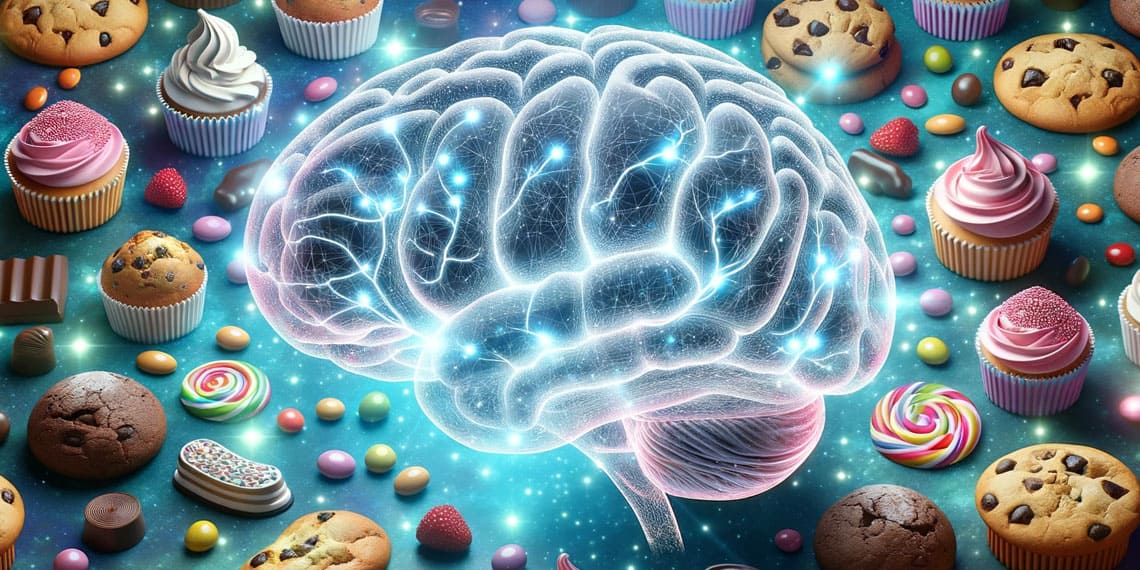Eating disorders, such as anorexia nervosa, bulimia nervosa, and binge-eating disorder, impact millions of individuals worldwide, but the causes behind them are intricate and not fully understood. A recent publication in Neuropsychopharmacology has shed light on the connection between the brain’s response to food expectancies, anxiety traits, and eating disorders. This research holds potential implications for the treatment of these disorders and the development of more effective therapies.
Eating disorders are psychiatric conditions characterized by abnormal eating behaviors and dissatisfaction with the body. Anorexia nervosa involves severe food restriction and low body weight, bulimia nervosa includes regular binge-eating and purging, and binge-eating disorder features recurring episodes of binge-eating without compensatory behaviors. Another category, known as Other Specified Feeding and Eating Disorders (OSFED), includes disorders that do not meet the criteria for the specific categories mentioned above.
Individuals with eating disorders often experience high levels of body dissatisfaction and a strong desire for thinness. They also struggle with managing intense emotional states such as anxiety, sadness, or anger.
Previous studies have indicated that anxiety-related traits, including trait anxiety and harm avoidance, may contribute to the development of eating disorders. Trait anxiety refers to an inclination to experience heightened levels of anxiety in various situations, while harm avoidance involves perceiving environmental threats more intensely. These traits have been linked to various aspects of eating disorder psychopathology in prior research.
Neurobiological studies have also highlighted the significant role of brain reward circuits in the development and maintenance of eating disorders. These circuits are involved in processing pleasurable experiences, including consuming food. Previous research has demonstrated alterations in these reward circuits among individuals with eating disorders.
“By researching the brain reward circuits, we have observed that individuals with eating disorders exhibit distinct responses compared to controls in dopamine-related brain circuits,” shared study author Guido K.W. Frank, a psychiatry professor at the University of California San Diego and director of psychiatry at Rady Children’s Hospital San Diego.
“We also know that the cognitive and emotional aspects of eating disorders, such as fears related to regaining weight or body image issues, present similarities across different eating disorders. Additionally, there is a conditioned fear of caloric food that transcends diagnostic categories. However, uncertainties persist regarding: 1) which brain circuits are involved in the expectation or fear of receiving caloric food, 2) how expectation and outcome (actual reception of a caloric stimulus) interact, and 3) the influence of non-eating disorder related anxiety on these circuits.”
“I find the latter particularly crucial because it has been striking to observe that eating disorders often emerge during stressful periods, such as the start of school, which entails significant stress for individuals who already tend to be perfectionistic and anxious.”
The study involved 197 women with various eating disorders and 120 healthy control participants. To ensure accurate data, participants underwent comprehensive assessments, including psychiatric diagnoses, anxiety evaluations, and measurements related to eating disorder behaviors and attitudes.
Functional magnetic resonance imaging (fMRI) was utilized to measure brain activity while participants anticipated and received caloric and non-caloric taste stimuli. The researchers focused on specific brain regions, such as the amygdala, which plays a central role in processing expectation, vigilance, anxiety, and threat, as well as regions associated with reward processing.
Frank and his colleagues discovered that individuals with eating disorders displayed heightened amygdala responses when anticipating high-calorie food stimuli compared to healthy controls. This heightened response suggests increased sensitivity to the anticipation of caloric intake among individuals with eating disorders.
“In other words, people’s responses to actually receiving or eating a specific food are significantly influenced by their expectations about how that food or meal will turn out,” explained Frank. “This is important because we can use psychotherapy or other treatments to modify expectations. Furthermore, we need to pay attention to how we manage trait anxiety or anxious disposition as it likely impacts all these processes.”
Trait anxiety had a substantial impact on the relationship between amygdala response to expectation and brain response to the reception of sucrose. The relationship exhibited an inverted-U-shaped pattern, indicating that both low and very high levels of trait anxiety were associated with lower amygdala response.
“We observed an inverted-U-shaped relationship between trait anxiety and brain response, whereby low amygdala response was connected to low trait anxiety at one end of the spectrum (likely indicating low activation to begin with), and to the very high end of trait anxiety (where individuals likely displayed signs of ‘burnout’ after prolonged high anxiety). This suggests that we may not always find straightforward brain-behavior relationships in studies because we tend to look for linear connections, which may not always exist,” elucidated Frank.
The study proposes that modifying expectations regarding how a meal will turn out could be a promising target for therapy in individuals with eating disorders. Additionally, effectively managing anxious traits may play a vital role in enhancing the brain’s response to food-related stimuli.
While this study offers valuable insights, it does have limitations. The majority of participants were women, and future research should explore the applicability of these findings to individuals of different gender identities. Moreover, the study’s findings are correlational, and further research is necessary to establish causality and determine the most effective interventions for individuals with eating disorders.
“We need to ascertain the best approaches for treating these brain-behavior abnormalities in order to alleviate distress,” emphasized Frank.
The study titled “Trait anxiety is associated with amygdala expectation and caloric taste receipt response across eating disorders” was co-authored by Guido K. W. Frank, Megan E. Shott, Tamara Pryor, Skylar Swindle, Tyler Nguyen, and Joel Stoddard.


